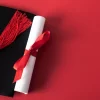“Death Note,” according to a Wikipedia article that I thoroughly skimmed (mostly), is a Japanese manga series that originally ran from 2003-2006, and featured a teen who, upon discovering a magical notebook that would kill anyone whose name was written in it, tried to rid the world of evil. The comic (as American audiences might call it) was eventually adapted into a Netflix feature film that debuted on the platform in 2017.
That’s when all the trouble started.
Two “Death Note”-inspired notebooks popped up at Detroit’s Earhart Elementary-Middle School in 2018. More showed up in Fulton County, Georgia and the South Carolina Lowcountry the following year. In 2022, alone, similar notebooks have appeared in schools in New Hampshire, Connecticut and North Carolina. However, none of these “Death Notes” have harmed anyone because this is the real world and not the fantastic musings of author Tsugumi Ohba and illustrator Takeshi Obata.
And yet the parents of the Trussville City School system are apparently working themselves into a panic after learning that a similar notebook was found last year and quietly — and appropriately — dealt with.
According to a statement from Kim DeShazo, the vice president of the Trussville City Schools Board of Education, in October 2021, Hewitt-Trussville High School Principal Tim Salem found a “Death Note”-inspired notebook that had been “left behind” by a student. The notebook, true to the series and Netflix film, included the names of 37 students who were to magically die, in ways absurd (ants) and all too real (AK-47). Salem and the school’s counselor interviewed the student, who explained the context for the notebook, and the principal considered the matter over, although he resolved to “monitor the student’s behavior for the remainder of the school year,” according to DeShazo.
That decision — along with not telling students and parents — is apparently contrary to the system’s policies, which mandate informing the school’s resource officer of apparent threats. The “error” (which appears only to be a prudent exercise in judgment) was discovered after the same student made a threat about “shooting up the school with a bow and arrow,” after which Salem, who has since been placed on administrative leave, disclosed last year’s incident.
Setting aside the bow and arrow remarks (of which we know little context), it’s clear that the 2021 notebook was not a “true threat” and therefore not subject to criminal punishment. Judging by the fact it was, again, “left behind,” the student likely did not disclose the book to any of its intended “victims,” and DeShazo’s statement suggests some of those same “victims” wrote their names in the notebook themselves, only further strengthening the argument that this was simply an admittedly poorly thought-out attempt at dark humor. However, either in an abundance of caution or zealotry, Trussville Police attempted to secure an indictment for making terroristic threats, only for the Jefferson County District Attorney’s Office to decline the charge.
To be clear, Salem — consistent with the Supreme Court’s decision in Tinker v. Des Moines — could have punished the student for the notebook since that case allows for sanctions against speech that causes a “material and substantial disruption” to school operations; we need only look at the threats of teacher walkouts and student withdrawals to see the sort of (unfounded) chaos this sort of speech can create.
“Every time that there is a loud noise … we are in terror in our house,” one parent said last week at a Trussville City Council meeting. “We don’t sleep, we’ve had no rest.” One mother said of her family that their lives had been “turned upside down” after she learned her son’s name was one of the 37 in the notebook.
City leaders, though, seem content to lump blame on the principal rather than calm anxieties, with Police Chief Eric Rush saying his department can “only do and respond to things that we are made aware of,” while Mayor Buddy Choat implied the town was lucky that the student hadn’t acted on the “threats” in the notebook.
“We dodged a bullet. I truly mean that,” Choat said at a press conference. “We dodged a situation that we wouldn’t need to have this meeting today if it had been handled properly.”
Handling it “properly” would have been to inform the police, yes, but for what? So they could have conducted the investigation last year and failed to indict the student even earlier? Perhaps Principal Salem could have move up the parade of panicked parents and Choat’s pointless preening, as well.
If we are to have any hope of maintaining a modicum of sanity in a world of both dark and fictionalized entertainment and teens who have yet to learn the boundaries of culturally acceptable expression, then we must distinguish between violent expression, intentional threats of violence and actual violence directed at the school community. Salem did that here in correctly placing the student’s comic-inspired fantasy into that first category, a realm that does nothing to hurt anyone. The second really is a matter for law enforcement, but it doesn’t take a police department to suss out when a threat is truly a threat — simply ask yourself: Was there menace behind it? Did it feel like a threat? A forgotten notebook based on fantasy violence hardly rises to such an ominous level.
And as for that third category, if the tragedy in Uvalde taught us anything, there may be nothing short of a fundamental change in American law and culture that will do anything to keep school children safe.
Behind their rage and fear, that’s ultimately what Trussville parents want: to be secure in the knowledge that their children will be OK when they go to school or church or anywhere else a teen has a right to be. Yet we cannot fully guarantee them that safety, and no policing of expression nor wave of terminations will grant the peace those parents seek. Hewitt-Trussville High School Principal Tim Salem exercised a measure of judgment and grace, and for that, he should be thanked.
Not vilified.


















































